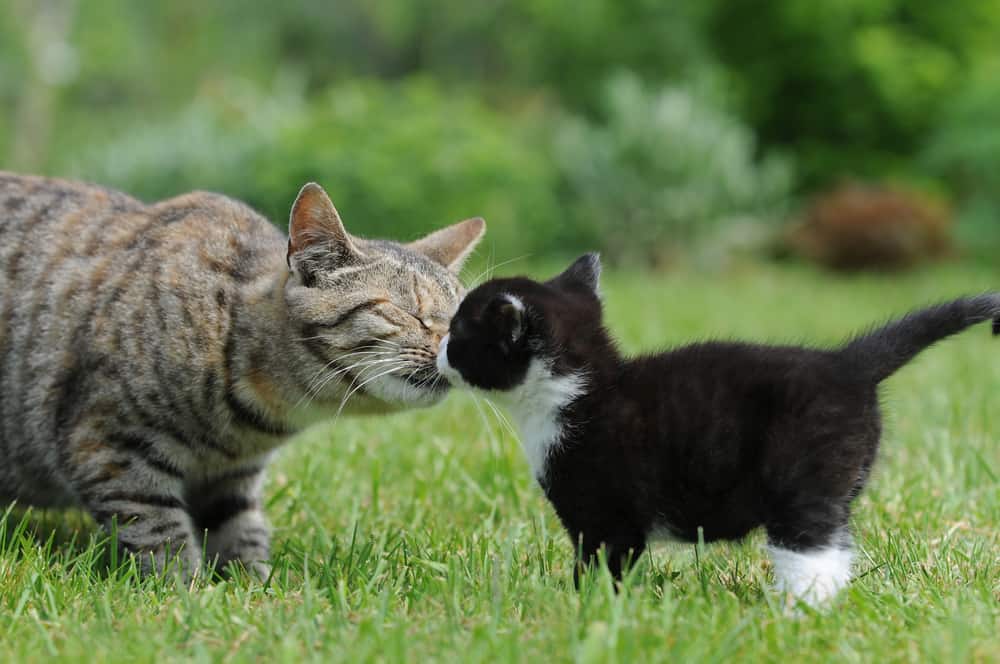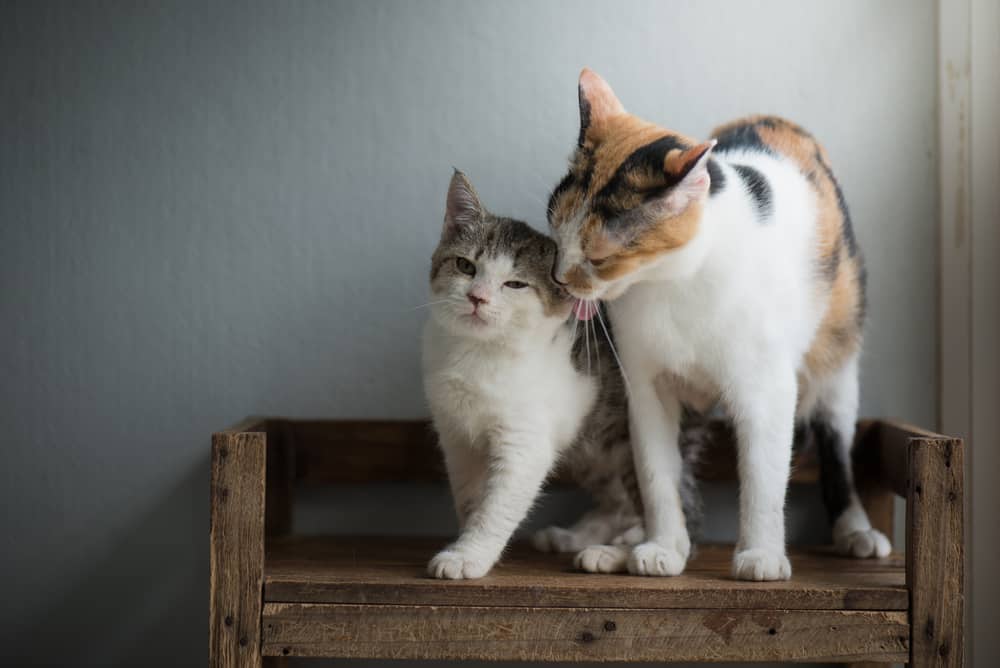Why Cats Hiss at New Kittens and What You Can Do About It

The world over, cats are some of the most popular pets. Is it any wonder why? With their soft fur, their little toe-beans, their silly antics, and that adorable purring, what’s not to love? They are wonderful companions, and can be very loving and affectionate. Not only are they a great cure for loneliness, our kitties actually come with some health benefits, too, like stress and anxiety relief.
Cat owners enjoy them so much that they often have more than one; some even find themselves with a house full of kitties! It makes a lot of sense, doesn’t it? If having one cat is good, surely having more is even better! Is going out and adopting a new kitty that simple, though? Have you ever wondered how your beloved furbaby at home would react if you brought in a new kitten?
While it’s true that some cats naturally get along with others right from the get-go, many of our kitties feel distressed when a new cat or kitten is brought into the home. Often our sweet kitties will emit scary hissing sounds, low growls, and even run away and hide. What causes this reaction? What can you do to make your cat feel better? How do you keep your denizen cat from hissing at your new kitten? Here, we’ll tackle this issue and answer these questions.
Why Do Cats Hiss?
Let’s say you decide to adopt a cat or kitten. You bring the new fuzzy baby home, and your older cat is not happy about it. In fact, he is so upset at the new cat’s arrival that he shows his teeth, lets out a sharp hiss, and follows ist with a low growl. Before you can blink, he’s hiding under your bed, and your new kitty is frightened and confused.
Why Do Many Cats React to New Kittens This Way?
The first thing that is important to understand is that some cats are naturally very territorial. When Fluffy sees another cat taking over his space, he might feel like he needs to assert dominance over the new kitty. By letting out a hiss and a growl, he’s saying, “Hey, I’m the boss around these parts!”
Another thing is that cats can feel threatened any time something in their environment changes. Anything from another animal, a strange visitor, or even a piece of furniture can cause a cat to be upset. Bringing home a new cat or kitten might make the furbaby you have at home feel frightened. This, too, can result in hiding and hissing behavior. In this case, the hissing would be telling the newcomer to “Stay away from me.”
Why Are Cats So Territorial?
Where does all this territorial behavior come from in the first place? This question can be answered in one word: instincts. In the wild, big cats like tigers, leopards, and cheetahs are solitary, territorial animals. They guard their hunting grounds and don’t appreciate other animals moving in on their turf.
House cats have retained some of these instincts. Like their big-cat counterparts, house cats are natural hunters. As such, they are territorial of their hunting grounds. What are their hunting grounds? Your house and your yard. That’s why your sweet-natured fluffball gets so miffed if another animal or a new person comes over. If you can learn to appreciate his inner hunter, you will better understand his behavior.
How to Introduce a New Kitten to Your Cat

So what can you do to keep your ferocious felines from throwing down? Follow these tips so there won’t be even one toe-bean out of place.
Keep Them in Separate Rooms at First
Get your kitties familiarized slowly. Keep them apart at first, with your new furbaby in a different room. Start by allowing them to smell toys or bedding belonging to each other.
Introduce Them – With a Barrier Between Them
Once they can pass the “smell test” without hissing or growling, it’s time to let them see each other. But safety comes first, so you are only going to do this through a pet gate or a screen/glass door.
Allow Them to Meet Directly
If they are playing nice when they see each other through the barrier, it may be time to let them be in the same space together. Allow them to enter the same room, perhaps on opposite sides at first. Stay nearby, in case you need to intervene, and see how it goes. Try this several times until they seem to be able to tolerate each other.
Consider a Pheromone Spray
You may want to consider trying a pheromone spray to help keep your kitties calm as well. While not all cats react to these sprays, they can help keep some cats much calmer in stressful situations, such as meeting a new kitten.
How to Calm Your Hissing Cats
Your cats have met each other, and your resident feline became aggressive. He hissed, spit, and arched his back. Perhaps your new furbaby is now frightened or is even responding in kind. Before you can try re-introducing them in a more diplomatic way, you must soothe your cats and help them feel safe.
Follow these basic steps to calm your kitties down:
- First, separate your upset cat(s) from the other cat, other pets, and or people. Allow them to rest in a quiet, empty space, preferably with a soft place to sleep.
- After your kitty has had some time alone to calm down, you can try coming close and speaking softly. Bring him some food and water, and if he’ll let you, you can try gently petting him.
- If your kitty is unresponsive to you, or continues to growl or hiss, it may be best to leave him alone in the quiet area to calm down by himself.
- Once both cats are completely calm, you can try to slowly introduce them to each other the correct way.
How to Keep Your Cats Calm Long-Term
Now that you have an additional critter in your home, and you have brokered a fragile peace, you must maintain it by ensuring that your cats have plenty of their own spaces and their own things. Your denizen cat likely fancies himself the dominant one and will not like a newcomer encroaching on his space. Each cat will need their own feeding and water bowls in different areas, their own litter boxes in different spaces, and you will want to have twice as many playthings, scratching things, hidey-holes, cat beds, and lounging areas as you did before.
Best Friends Forever?

So when will your furry children be best of friends? How long before they are cuddled up in the kitty condo or eating out of the same bowl?
Well, maybe never. If they can be in the same spaces with each other, with no growling, hissing, or clawing, consider it a victory.
As much as we’d love for all of our pets to get along and love each other, sometimes they just don’t. If you are lucky, your cats will grow to love each other after a while. It’s great when that happens, and it’s certainly adorable to see two kitties snuggling in the same cat bed. More likely than not, they will enter a somewhat peaceful coexistence after getting used to each other, probably occasionally judging each other from across the room. They are cats, after all.
As we have learned, cats do not always welcome new cats and kittens. Hopefully, by following the steps laid out in this guide, bringing home another kitty will go smoothly, and your cats will learn to tolerate one another. Cats are wonderful pets, that are full of personality and warmth. People love their cats, even when those cats don’t always love each other.




